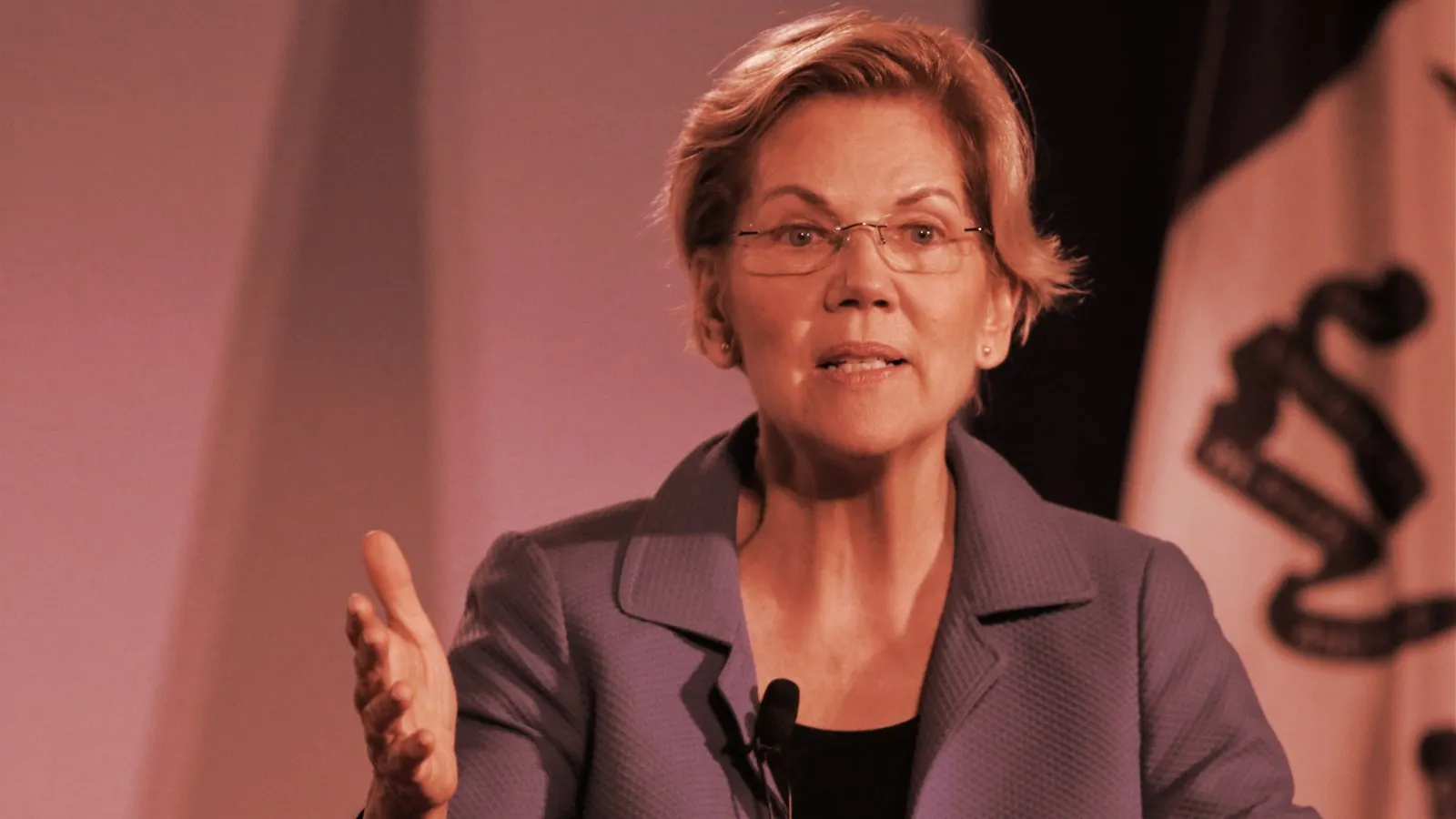We do the research, you get the alpha!
Senator Elizabeth Warren of Massachusetts is garnering support among colleagues on Capitol Hill for a letter that would ask the Office of the Comptroller of the Currency (OCC) to withdraw crypto guidance banks have relied on.
Warren is asking fellow Senators to sign on to the letter, according to reporting from Bloomberg News, and plans on sending a final version of it soon to Acting Comptroller of the Currency Michael Hsu, who leads the office.
The legal guidance targeted by Warren deems it appropriate for banks to hold deposits that act as reserves backing stablecoins, laying the foundation for banks to offer other crypto-related services to customers. The request, reviewed by Bloomberg News, asks the OCC to work with the Federal Reserve and Federal Deposit Insurance Corporation to develop a new approach.
An outspoken advocate on regulating the crypto industry, Warren has pushed agencies to establish better protections for consumers. The letter being circulated reportedly states, “Cryptocurrencies are highly volatile assets that offer few, if any, protections to retail investors.”
Warren has raised multiple issues in relation to cryptocurrency, between how it could purportedly be used by Russian oligarchs to evade economic sanctions, to the negative environmental impacts of mining digital assets. A member of the Senate Banking, Housing, and Urban Affairs Committee, she accused Wall Street firms of profiteering from crypto scams at a recent hearing.
The legal interpretations identified in Warren’s letter were established during the Trump administration, when the OCC was led by Brian Brooks, a former executive of Coinbase who would later serve as CEO of Binance US for three months. Brooks was the acting head of the OCC for eight months before stepping down from his role, despite being nominated for a full term.
While leading the office, the OCC supported crypto innovation and made the legal interpretation that it was okay for banks to use blockchain technology and stablecoins to facilitate payments. After Brooks left the agency, Hsu called for a review of guidance on digital assets issued by his predecessor.
“My broader concern is that these initiatives were not done in full coordination with all stakeholders,” Hsu wrote in prepared remarks to the House Committee on Financial Services. “Nor do they appear to have been part of a broader strategy related to the regulatory perimeter.”
In November, the OCC issued a joint statement with the Board of Governors of the Federal Reserve System and FDIC, outlining a roadmap to determine whether banks engaging with crypto in certain ways is legally permissible, including the issuance and distribution of stablecoins and loans collateralized by crypto-assets.
However, the statement did not change to legal interpretation of any guidance issued by the OCC under Brooks. The office clarified on its website, “The statement from the agencies does not alter any existing agency rules or regulations.”
A recent decline in the price of most digital assets is cause for concern that the OCC has left the American banking system vulnerable to crypto with “unnecessary risk,” amid insolvencies from multiple firms operating in the industry, the letter reportedly states.
According to Bloomberg News, Warren wrote, “We are concerned that the OCC has failed to properly address the shortcomings of the preceding interpretive letters and the risks associated with crypto-related banking activities, which have grown more severe in recent months.”
The letter ends with a series of questions posed to the OCC pertaining to regulated banks involved with crypto. It asks the OCC to name which ones offer services related to digital assets and detail the estimated volume of those activities, according to Bloomberg News. Elizabeth Warren’s office did not respond immediately to requests for comment.





